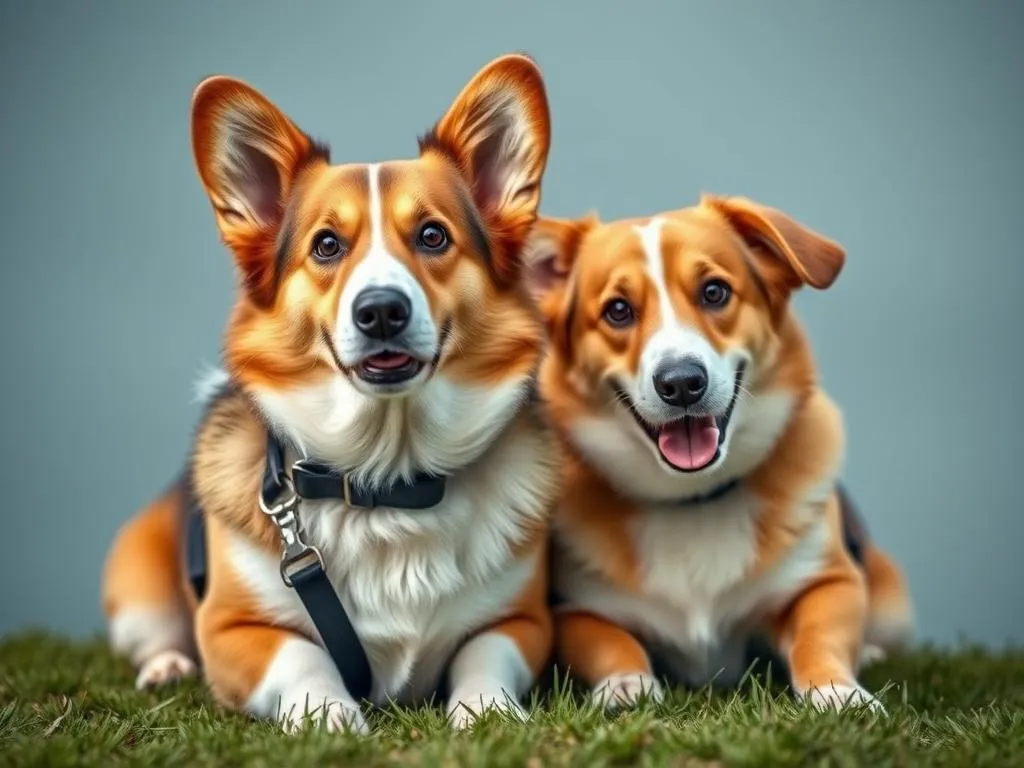
Introduction
Service dogs play a crucial role in assisting individuals with disabilities, providing support and companionship. These specially trained dogs help people navigate daily challenges, from guiding the visually impaired to alerting those who are deaf. Understanding the various types of service dogs is essential, as each breed may bring unique traits to the table.
When it comes to dog breeds, Corgis—specifically the Pembroke Welsh Corgi and the Cardigan Welsh Corgi—have gained popularity not only as adorable pets but also as capable working dogs. Their intelligence, sociable nature, and distinctive physical characteristics make them stand out. However, it raises an important question: do Corgis make good service dogs? To answer this, we will delve into the traits, abilities, and potential challenges that Corgis bring to the service dog arena.
Understanding Service Dogs
Types of Service Dogs
Service dogs are classified based on the specific needs they address. Here are some common types:
- Guide dogs assist individuals who are visually impaired, helping them navigate their surroundings safely.
- Hearing dogs alert individuals who are deaf or hard of hearing to important sounds, such as doorbells and alarms.
- Mobility assistance dogs aid individuals with mobility challenges, providing physical support or retrieving items.
- Medical alert dogs can detect medical conditions like seizures or low blood sugar and alert their handlers.
Legal Definitions and Rights
Under the Americans with Disabilities Act (ADA), service dogs are defined as dogs that are individually trained to perform tasks for people with disabilities. This law grants service dogs the right to accompany their handlers in public spaces, including restaurants, stores, and public transportation. It’s important to note that emotional support animals or therapy dogs do not have the same legal protections.
Training Requirements
The training for service dogs is rigorous, focusing on specific tasks that assist their handlers. Key training elements include:
- Basic obedience: Commands such as sit, stay, and come are essential.
- Behavior and temperament: Service dogs must exhibit calm and friendly behavior, particularly in public settings.
The importance of a well-trained service dog cannot be overstated, as their reliability can significantly impact their handler’s quality of life.
Overview of Corgis
Corgi Breeds
There are two primary breeds of Corgis:
- Pembroke Welsh Corgis: Known for their short tails and outgoing personalities, Pembrokes are often favored for their adaptability and friendliness.
- Cardigan Welsh Corgis: With a slightly larger build and long tail, Cardigans are known for their loyalty and protective instincts.
Both breeds exhibit traits that can potentially be beneficial in service dog roles.
Corgi Temperament
Corgis are known for their intelligent, friendly, and energetic personalities. They are highly social animals, often forming strong bonds with their owners and families. Their adaptability allows them to thrive in various environments, making them suitable candidates for many service roles.
Physical Characteristics
Corgis are small to medium-sized dogs, typically weighing between 25 to 30 pounds. Despite their compact size, they possess a strong build. However, potential health issues, such as hip dysplasia and obesity, can affect their service capabilities. Regular check-ups and a healthy diet are essential for maintaining their overall well-being.
Characteristics of Corgis as Service Dogs
Positive Traits
Corgis possess several characteristics that could make them effective service dogs:
- Intelligence and trainability: Corgis are quick learners and can grasp commands and tasks with relative ease. Their intelligence allows for advanced training in specific service tasks.
- Affectionate nature: Corgis are known for their loving disposition, which can provide emotional support to their handlers.
- Natural instincts: Their herding background fosters a sense of alertness and awareness, which can be beneficial in service roles.
Limitations and Challenges
While Corgis have many positive traits, there are also limitations to consider:
- Size and strength considerations: Corgis may lack the physical strength required for certain tasks, such as heavy lifting or mobility support.
- Potential stubbornness and independence: Corgis can exhibit stubborn behavior, which may hinder their training progress.
- Health issues that may affect work: Common health concerns in Corgis, such as back problems due to their long body and short legs, might limit their ability to perform certain tasks consistently.
Training Corgis as Service Dogs
Basic Training Techniques
Training a Corgi as a service dog begins with essential obedience training. Key components include:
- Obedience training essentials: Teaching commands like sit, stay, and heel forms the foundation for further training.
- Socialization: Exposing Corgis to diverse environments, people, and other animals is crucial in developing their social skills and adaptability.
Advanced Service Dog Training
Once basic training is established, Corgis can undergo advanced training that focuses on specialized skills. This may involve:
- Task-specific training: Teaching Corgis to perform tasks tailored to the needs of their handler, such as retrieving medication or alerting to specific sounds.
- Consistent reinforcement: Utilizing positive reinforcement techniques ensures that Corgis remain motivated and engaged throughout their training.
Finding a Qualified Trainer
Selecting a trainer experienced with Corgis is vital for successful training. When searching for a trainer, consider:
- Experience with Corgis: Look for trainers who have a background in working with the breed, as they will better understand their unique traits.
- Certification and experience: A certified trainer with a proven track record in service dog training will provide a solid foundation for your Corgi’s education.
Success Stories and Examples
Real-life Accounts
There are heartwarming stories of Corgis successfully serving as service dogs. One notable example is a Pembroke Welsh Corgi named Max, who assists his owner with mobility challenges. Max’s quick learning and affectionate nature have made him an invaluable companion, providing both emotional and physical support.
Testimonials from Corgi owners often highlight their dogs’ unique ability to connect with people. Many owners report that their Corgis not only assist with specific tasks but also provide comfort and joy in their daily lives.
Comparison with Other Breeds
While certain breeds are commonly preferred for service roles—such as Labrador Retrievers or Golden Retrievers—Corgis have their own set of strengths. In some instances, Corgis excel in specific service tasks due to their size and agility, making them better suited for certain environments.
However, not all service roles may be ideal for Corgis. For example, larger breeds may be more effective as mobility assistance dogs due to their strength. Therefore, understanding the specific needs of the individual requiring assistance is essential when considering whether a Corgi would be a good fit.
Conclusion
Summary of Key Points
In evaluating whether Corgis make good service dogs, it is clear that they bring both strengths and challenges to the table. Their intelligence, affectionate nature, and adaptability can contribute positively to their effectiveness as service dogs. However, their size, potential stubbornness, and health considerations may pose challenges that need to be addressed during training and in their role.
Recommendations for Potential Owners
Individuals considering training a Corgi as a service dog should weigh the pros and cons carefully. While Corgis can excel in many areas, it’s crucial to assess their specific traits against the needs of the handler. Ultimately, the decision should be based on the unique circumstances of the individual, ensuring that both the Corgi and the handler can thrive together.









